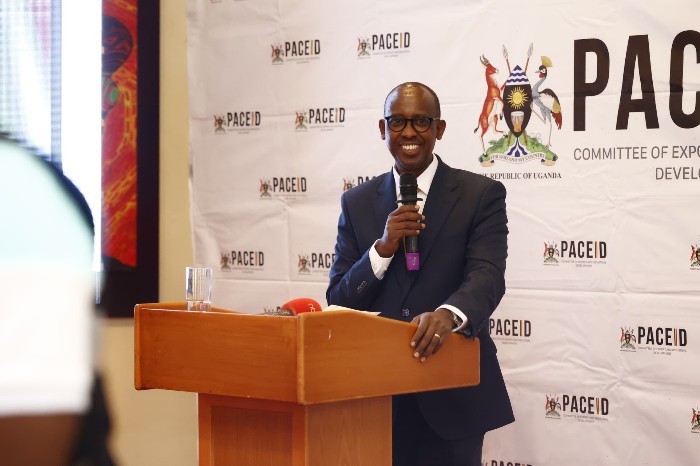
According to energy minister, Dr. Ruth Nankabirwa, the development is poised to revolutionize the country’s agricultural sector, as the country strides towards sustainable farming practices and green growth initiatives.
Nankabirwa said the project signals a milestone in Uganda’s pursuit of sustainable energy solutions and economic prosperity, and the government’s commitment to fostering an enabling environment for renewable energy investments.
Speaking at the signing of the joint development agreement held at the Kampala Serena hotel, Nankabirwa emphasized the creation of over 300 direct jobs and the positive impact on social security in the region.
She highlighted the project’s alignment with Uganda’s energy policy, which prioritizes a transition to sustainable energy sources and harnessing the potential of green hydrogen for economic development.
“This project is commited to knowledge sharing and capacity building. Through collaboration with international partners, Uganda aims to leverage cutting-edge technologies and scientific advancements to address pressing agricultural challenges, thus positioning itself as a hub for innovation and sustainable development.”
The project is supported by the British and Norwegian governments.
British High Commissioner to Uganda, Kate Airey, emphasized the importance of embracing green investments and renewable technologies to combat climate change.
Airey highlighted the UK government’s commitment to promoting renewable energy, evident in its sponsorship of a renewable energy conference in Uganda last year.
She said the potential impact of hydrogen-based fertilizer on Uganda’s agricultural landscape cannot be overstated. With a majority of the population engaged in agriculture, the adoption of innovative farming techniques is essential for boosting productivity and improving livelihoods.”
The hydrogen-based fertilizer plant represents a pioneering venture into green technology utilization, with the aim of producing fertilizer locally.
The Deputy High Commissioner of Norway, Olive Beckham, commended the project as a testament to international cooperation and innovation. Beckham underscored Norway’s commitment to supporting sustainable development projects that harness renewable energy resources and promote economic prosperity.
“The hydrogen-based fertilizer plant, backed by substantial investment from Northland, NORAD, and West Gas Hydrogen, represents a pioneering venture into green technology utilization. By leveraging Uganda’s abundant renewable energy sources, the project aims to produce fertilizer locally, addressing the challenge of food insecurity and reducing dependence on imported fertilizers,” he said.
Gallon Gollum, CEO of Industrial Promotion Services (IPS), emphasized the project’s alignment with the Aga Khan Development Network’s commitment to sustainable development. IPS views the initiative as a catalyst for climate action and low-carbon growth in Uganda, further solidifying its importance in the realm of sustainable development.
Odrek Rwabwogo, Chairperson of the Presidential Advisory Committee on Exports and Industrial Development (PACEID), highlighted the importance of shifting focus from aid to trade as a means of driving economic prosperity.
“With Africa collectively exporting $421b worth of goods in 2019, compared to $31b received in overseas development aid, the potential of intra-African trade to stimulate growth and create jobs cannot be overemphasized,” Rwabwogo said.
He highlighted the disparity in fertilizer production compared to countries like Brazil and Colombia, Rwabwogo underscored the importance of boosting domestic fertilizer production to meet growing demand.
The project is expected to increase fertilizer production from 40,000 to 200,000 metric tons, representing a significant step towards achieving the country’s ambitious agricultural targets.By leveraging renewable energy sources and enhancing backward linkages to agriculture, the initiative seeks to catalyze growth across the agricultural value chain, paving the way for a greener and more prosperous future.




